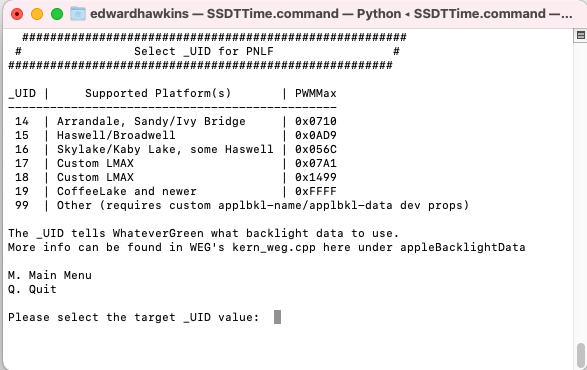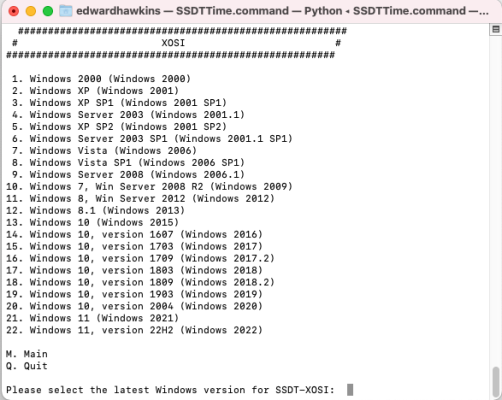- Joined
- Sep 22, 2011
- Messages
- 1,520
- Motherboard
- HP EliteDesk 800 G5 Mini
- CPU
- i9-9900
- Graphics
- UHD 630
- Mac
- Mobile Phone
Device (USBX) is the way a real Mac ACPI injects the USB power properties. I don't think we can conclude anything other than that there's more than one way to do this. Anything else is just a guess.Having read all the comments above, I think SSDT-USBX.aml is meant to be used when the SSDT-UIAC.aml that Hackintool generates is added to the setup. As the SSDT-UIAC.aml table doesn't contain any USB Power settings.
EDIT: See Rehabman's first explanation of USBX here.


